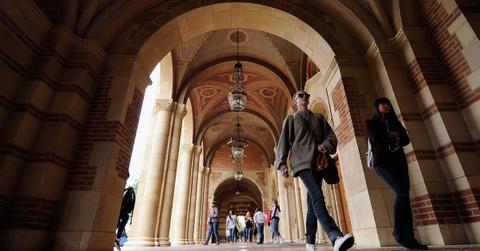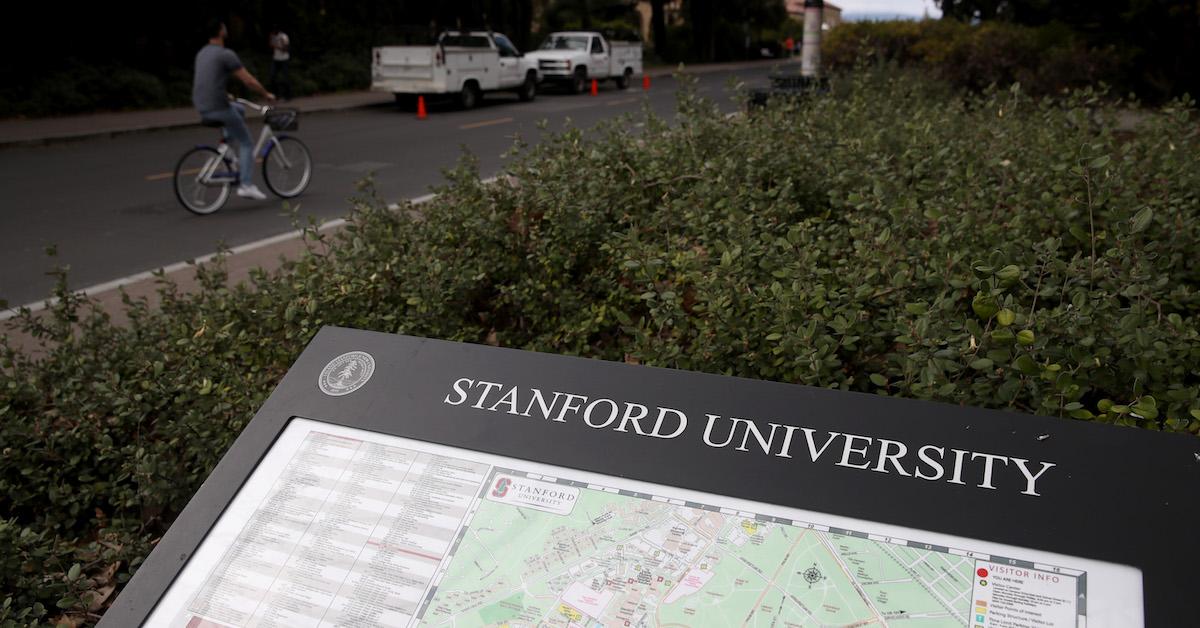These Are Some of the Best Colleges for Environmental Science and Studies
Updated Feb. 10 2023, 4:20 p.m. ET

There are so many ways to get involved in the fight against the climate crisis — and one of them is by studying environmental science. If you are thinking about attending college or university in the near future, you'll be happy to know that there are many institutes of higher education across the U.S. with fantastic environmental science and environmental studies programs.
If you major in environmental science, your studies will include elements of many other scientific disciplines, such as biology, chemistry, physics, geography, plant science, zoology, and more. You'll also find yourself well equipped to enter a variety of different professional fields after you graduate — many of which will have you in the weeds, working to mitigate climate change.
So, we've rounded up a few exceptional colleges with great environmental science and environmental studies programs — with varying acceptance rates and tuitions. Here they are, in no particular order:
Stanford University's Stanford Doerr School of Sustainability

The website Niche has rated Stanford University as the No. 1 college in the U.S. for studying environmental science. Stanford, located in California near San Francisco, is home to the Stanford Doerr School of Sustainability, which the university established in 2022 thanks to a $1.1 billion donation from billionaire couple John and Ann Doerr.
The sustainability school has a number of departments and programs: the Social Sciences Division, Civil and Environmental Engineering, Earth System Science, Oceans, Earth and Planetary Sciences, Geophysics, and Energy Science and Engineering.
There are also a few interdisciplinary programs, which are available to undergrads, masters, and Ph.D students: Earth Systems Program, Emmett Interdisciplinary Program in Environment and Resources, and Change Leadership for Sustainability Program.
Stanford has an acceptance rate of 4 percent, which is one of the lowest in the nation — so good luck.
State University of New York College of Environmental Science and Forestry (SUNY-ESF)
The State University of New York College of Environmental Science and Forestry, better known as SUNY-ESF, was named the No. 1 Public School for Making an Impact by the Princeton Review; the Princeton Review also named this school as the No. 3 Green School in the country.
The curriculum at SUNY-ESF, located in Syracuse, N.Y., is based all around the study of the environment, as well as creating renewable technologies and a sustainable future.
All eight of the school's departments are related to sustainability. They are: Chemical Engineering, Chemistry, Environmental Biology, Environmental Resources Engineering, Environmental Science, Environmental Studies, Landscape Architecture, and Sustainable Resources Management. The university also contains The Ranger School, where students get to learn all across the 2,800-acre forest that is part of SUNY-ESF’s campus.
As a state school, SUNY-ESF offers discounted tuition compared to private colleges. Its acceptance rate is about 65 percent.
Dickinson College
Located in Carlisle, Penn., the private liberal arts school Dickinson College is ranked No. 2 on Princeton Review's list of Green Colleges.
Dickinson College's environmental studies & environmental science department is one of the U.S.'s oldest and best established departments of its kind, according to the Pennsylvania-based school. Students can either earn a B.S. in environmental science, or a B.A. in environmental studies.
Topics taught within the department include: "environmental policy, aquatic ecology, agroecology, forest ecology, environmental health, food studies, sustainable communities, international environmental politics, environmental philosophy, ethics and literature, wildlife conservation, natural resource management, and environmental justice."
The department is big on hands-on learning, and professors encourage students to step out of the classroom and get involved with the real world as part of their studies.
Dickinson College had an acceptance rate of 35 percent in 2022.
University of Vermont (UVM)
Ranked as the No. 13 Green College by the Princeton Review, the University of Vermont's department of Environment and Sustainability is "inspired and educated by the natural landscape that surrounds" UVM's campus.
The department offers degrees for both undergraduate and graduate students, as well as minors for undergrads. Some of the majors students can study within the department include: Agroecology and Landscape Design, Community and International Development B.S., Environmental Engineering, Environmental Sciences, Environmental Studies, Food Systems, Forestry, Geography, Plant Biology, Sustainable Business, and more.
UVM is a public research university, and offers discounted tuition for in-state students — though it is one of the most expensive public universities in the U.S. As of 2022, UVM's acceptance rate is 59 percent.
University of Michigan School for Environment and Sustainability (SEAS)
The University of Michigan may be a massive university, but the University of Michigan School for Environment and Sustainability (SEAS) offers a small community on a large campus. SEAS aims to train the next generation of game changers, who will be able to use their education to tackle issues including climate change, pollution, social inequity, and more.
The school's undergraduate program is known as Program in the Environment (PitE), which offers a broad liberal arts education in various environmental topics. SEAS also offers degrees including a Master of Science, Master of Landscape Architecture, Doctoral, Dual Degree Master’s, and Accelerated Master’s Degrees.
As a public university, UMich has discounted tuition rates for in-state students. Its acceptance rate is around 20 percent.